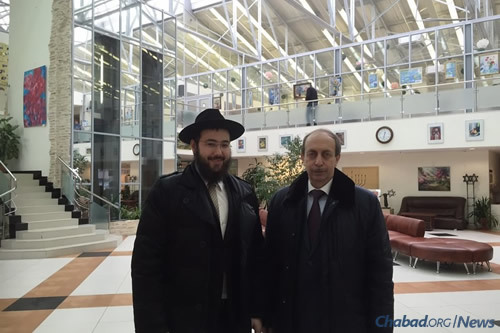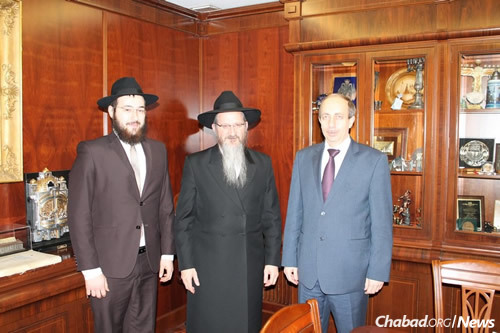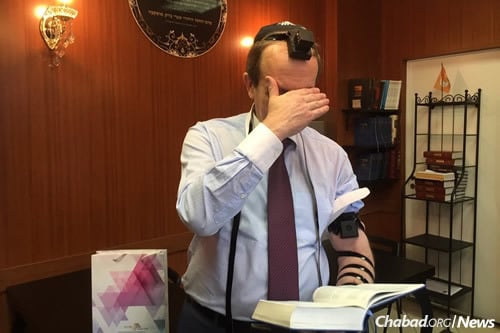Alexander Levinthal, the newly appointed governor of Birobidzan—the storied "Jewish” oblast close to the Chinese border in the Russian Far East—took part in an unexpected celebration last week at a meeting with Jewish leaders in Moscow after he was asked if he would like to put on tefillin.
Much to the surprise of everyone present, he revealed that he had never wrapped tefillin before. In an emotional explanation that followed, Levinthal expressed his gratitude to be finally celebrating the bar mitzvah he never had at age 13.
Levinthal had been meeting with Chief Rabbi of Russia Berel Lazar. Accompanied by Chief Rabbi of Birobidzan Eliyahu Riss, Levinthal was given a tour of the Marina Roscha Synagogue and Jewish Center, as well as the adjacent Jewish Museum.
During the course of the visit, Levinthal unveiled plans to build Birobidzhan’s first ever mikvah (ritual bath), promising to begin construction within the coming months.
Located in Russia’s Far East on the northern border of China, Birobidzhan (Birobidjan) was established by Stalin in 1931 as a Jewish Autonomous Oblast, meant to be the Soviet alternative to a Jewish Homeland, populated by Jews but devoid of any traditional Jewish life.
With a total population of about 75,000, Birobidzhan is currently home to about 4,000 Jews.
This story is part of a series of articles on Jewish life in the former Soviet Union in the 25th year since the formal dissolution of the USSR on Dec. 26, 1991.
The first article in the series, “L’Chaim on a Moscow Train Platform,” can be read here.










Start a Discussion